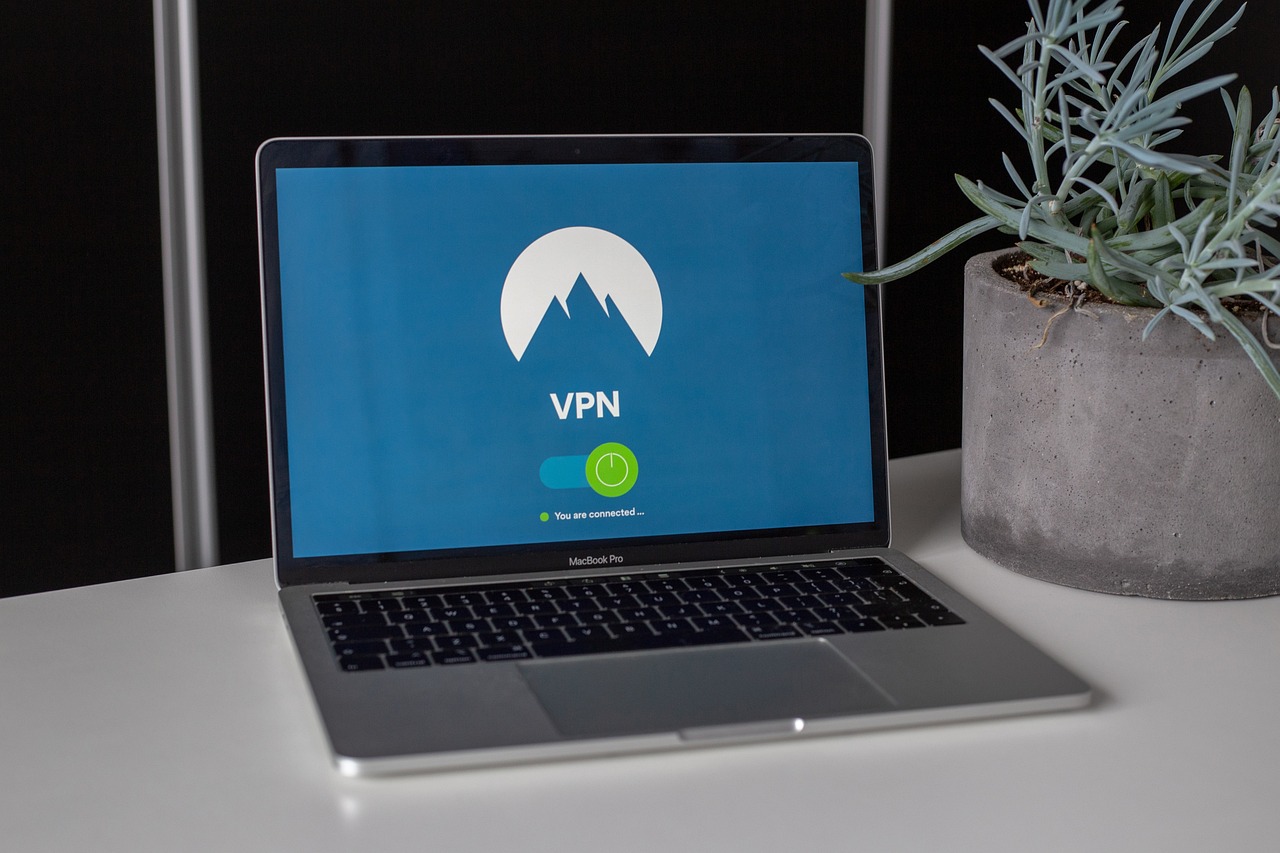This article serves as a comprehensive guide on how to effectively search for remote part-time jobs. It delves into essential strategies, platforms, and practical tips that can significantly enhance your job search experience.
In recent years, remote part-time jobs have gained immense popularity, providing individuals with the flexibility to work from home while managing other responsibilities. This section will explore the defining characteristics of these roles and why they are increasingly favored in today’s evolving job market.
- Flexibility: Remote part-time positions allow you to set your own hours, making it easier to balance personal commitments.
- Reduced Commuting: Working from home eliminates the stress and time associated with commuting, giving you more free time.
- Personalized Work Environment: You can create a workspace that suits your preferences, which can enhance productivity.
When searching for remote part-time jobs, it is crucial to identify the right platforms. Popular job boards such as FlexJobs, We Work Remotely, and Remote.co cater specifically to remote job seekers. Utilizing these platforms can streamline your search and increase your chances of finding the right position.
Networking also plays a vital role in discovering job opportunities. Engaging with professional networks on platforms like LinkedIn can help you uncover hidden job openings and connect with potential employers.
Once you’ve identified job opportunities, crafting a tailored resume is essential. Highlighting relevant skills and using a clean format can make your application stand out in the competitive remote job market.
Preparing for remote job interviews requires a different approach than traditional interviews. Ensure your technology is set up properly and familiarize yourself with common remote interview questions to make a positive impression.
In conclusion, successfully finding a remote part-time job involves strategic planning and execution. With the right approach and resources, you can enhance your job search experience and secure a fulfilling position that aligns with your lifestyle.

Understanding Remote Part-Time Jobs
In today’s fast-paced world, remote part-time jobs have gained immense popularity, providing individuals with the opportunity to work from the comfort of their homes while juggling other responsibilities. These roles are characterized by their flexibility, allowing employees to set their own hours and manage their workload according to personal commitments.
Typically, remote part-time jobs can encompass a wide range of industries, from customer service and marketing to software development and content creation. The defining feature of these positions is that they do not require a full-time commitment, making them ideal for students, parents, or anyone seeking to supplement their income.
The growing trend towards remote work is largely driven by technological advancements and a shift in workplace culture. Many companies are now recognizing the benefits of hiring remote workers, including reduced overhead costs and access to a broader talent pool. As a result, there has been a significant increase in the availability of remote part-time positions across various sectors.
Furthermore, remote part-time jobs can enhance job satisfaction and work-life balance. Employees often report feeling less stressed and more productive when they have the autonomy to design their own work environment and schedule. This flexibility not only improves overall well-being but also allows individuals to engage in other activities, such as pursuing education, caring for family, or enjoying personal hobbies.
In conclusion, the rise of remote part-time jobs reflects a significant shift in how we view work. As more organizations embrace this model, it is essential for job seekers to understand the landscape and leverage the opportunities that remote work presents.

Benefits of Remote Part-Time Work
In today’s fast-paced world, working remotely part-time has become an increasingly popular choice for many individuals. This arrangement not only offers a unique set of advantages but also caters to the evolving needs of the modern workforce. Below, we explore the key benefits that make remote part-time work an appealing option.
- Enhanced Work-Life Balance: One of the most significant benefits of remote part-time work is the ability to achieve a better work-life balance. With flexible hours, individuals can allocate time for personal pursuits, family, and self-care, ultimately leading to improved mental health and overall satisfaction.
- Reduced Commuting Time: Eliminating the daily commute not only saves time but also reduces stress and fatigue. This extra time can be redirected towards hobbies, exercise, or simply relaxing, contributing to a more fulfilling lifestyle.
- Personalized Work Environment: Working from home allows individuals to create a workspace that suits their preferences. Whether it’s a quiet corner with natural light or a cozy nook, a customized environment can enhance productivity and comfort.
- Increased Productivity: Many remote workers report higher levels of productivity when working from home. The absence of office distractions allows for deeper focus and the ability to complete tasks more efficiently.
- Cost Savings: Remote part-time work can lead to significant financial savings. With no commuting costs, reduced need for professional attire, and savings on meals, individuals can enjoy a healthier budget.
In summary, the benefits of remote part-time work extend beyond just flexibility and convenience. With a focus on work-life balance, productivity, and financial savings, this mode of employment is increasingly appealing to a diverse range of individuals. As the job market continues to evolve, embracing remote work can lead to a more satisfying and balanced lifestyle.
Flexibility in Work Hours
is one of the most appealing aspects of remote part-time jobs. This flexibility allows individuals to tailor their work schedules to fit their personal lives, which can significantly enhance both productivity and job satisfaction.
When employees have the ability to choose their working hours, they can align their work with their most productive times of the day. For instance, some people are early risers and can accomplish a lot in the morning, while others may find their peak productivity occurs late at night. This personalized approach to work can lead to better results and a higher quality of work.
Moreover, the flexibility of remote part-time jobs can greatly reduce stress. Individuals can manage their time more effectively, balancing work responsibilities with personal commitments such as family, education, or health. As a result, they often experience a greater sense of control over their lives, which contributes to overall job satisfaction.
Additionally, flexible work hours can facilitate a healthier work-life balance. Employees can schedule breaks, exercise, or even pursue hobbies during the day, which can lead to improved mental well-being. This balance is crucial, as studies have shown that happier employees tend to be more engaged and productive in their work.
In conclusion, the flexibility in work hours offered by remote part-time jobs not only enhances productivity but also contributes to a more satisfying work experience. By allowing individuals to work in a way that suits their personal lives, these roles can lead to a more fulfilled and motivated workforce.
Customizable Work Environment
In today’s fast-paced world, the ability to work remotely has transformed the way we view our professional environments. A customizable workspace not only enhances productivity but also significantly contributes to overall well-being. When you have the freedom to tailor your work environment according to your personal preferences, it can lead to a more fulfilling and efficient work experience.
One of the primary advantages of remote work is the flexibility it offers in creating a space that resonates with your individual style. Whether it’s a cozy corner in your living room or a dedicated home office, the choice is yours. This personalization can lead to improved focus and motivation. Here are some ways that customizing your workspace can positively impact your performance:
- Enhanced Comfort: Choosing ergonomic furniture and optimal lighting can reduce physical strain, making long hours more manageable.
- Increased Creativity: A personalized space filled with inspiring decor and tools can stimulate creativity and innovation.
- Reduced Distractions: By designing your workspace to minimize distractions, you can enhance concentration and efficiency.
Moreover, the psychological effects of a well-organized and aesthetically pleasing workspace cannot be underestimated. A clutter-free environment can lead to a clearer mind, allowing for better decision-making and problem-solving. Incorporating elements such as plants or artwork can also contribute to a more inviting atmosphere, promoting a positive mindset.
In conclusion, the ability to create a customizable work environment is one of the most significant benefits of remote jobs. By investing time and effort into designing a workspace that suits your needs, you can enhance both your productivity and well-being. Embrace this opportunity to shape your work life in a way that empowers you to perform at your best.
Reduced Commuting Stress
In today’s fast-paced world, eliminating the daily commute has become a significant factor in enhancing overall quality of life. The traditional 9-to-5 work model often requires long hours spent in traffic or on public transportation, which can lead to heightened stress and decreased productivity. By transitioning to remote part-time work, individuals can experience a multitude of benefits that positively impact their mental and emotional well-being.
One of the most immediate advantages of working remotely is the reduction in time spent commuting. Studies have shown that individuals who work from home report lower stress levels and improved mood. This is largely attributed to the extra time gained from not having to travel, which can be redirected towards personal activities, hobbies, or family time. Imagine having those precious hours each week to engage in activities that truly matter to you, rather than being stuck in traffic.
Additionally, the flexibility that comes with remote work allows individuals to create a more balanced lifestyle. Without the pressure of a daily commute, employees can structure their work hours around their personal commitments, leading to a more fulfilling life. This not only enhances job satisfaction but also contributes to better mental health.
Moreover, the financial implications of reduced commuting cannot be overlooked. Eliminating daily travel expenses for gas, public transport, and vehicle maintenance can lead to significant savings. These financial benefits can further alleviate stress, allowing individuals to focus on their work and personal growth without the burden of financial strain.
In conclusion, the shift towards remote part-time work presents a unique opportunity to enhance quality of life by eliminating the daily commute. By reducing stress levels, increasing free time, and providing financial relief, remote work fosters a healthier, more balanced lifestyle. As the job market continues to evolve, embracing this change can lead to a more fulfilling and productive life.
Financial Benefits of Remote Work
In today’s evolving job market, remote part-time jobs are gaining traction, not only for their flexibility but also for the significant financial savings they can offer. The transition to working from home can lead to a reduction in various expenses.
- Transportation Costs: One of the most immediate financial benefits of remote work is the elimination of daily commuting. By not having to travel to an office, employees can save on fuel or public transportation costs. This can amount to substantial savings over time.
- Meal Expenses: Many individuals incur extra costs for meals while at work, whether it’s buying lunch or coffee. Working from home allows for the preparation of meals at home, which is often more economical and healthier.
- Work Attire: The traditional office dress code often requires purchasing specific clothing. Remote workers can enjoy the freedom of dressing casually, which can lead to savings on clothing expenses.
Moreover, remote work can reduce other indirect costs such as:
- Childcare Expenses: For parents, being at home can lessen the need for childcare services, leading to further financial relief.
- Reduced Utility Bills: While working from home, employees may experience a slight increase in home utility bills; however, this is often offset by the savings from other areas.
In conclusion, the financial benefits of remote work extend far beyond just salary. By eliminating various expenses associated with traditional office jobs, remote part-time work can significantly enhance an individual’s overall financial well-being.

Where to Find Remote Part-Time Jobs
Finding the right platforms for your job search is essential in today’s digital age, especially when looking for remote and part-time opportunities. This section will explore some of the most popular and effective job boards and websites tailored specifically for these types of positions.
Popular Job Boards for Remote Work
- FlexJobs: A well-known platform that specializes in remote, part-time, freelance, and flexible jobs. Each listing is screened to ensure quality.
- Remote.co: This site offers a curated list of remote jobs in various fields, focusing on companies that support remote work.
- We Work Remotely: A popular job board that focuses exclusively on remote job opportunities across different industries.
- Upwork: While primarily a freelancing platform, Upwork hosts numerous part-time remote jobs across various skill sets.
- Indeed: This general job board has a dedicated section for remote jobs. You can filter your search to find part-time positions.
Websites Tailored for Part-Time Opportunities
- SimplyHired: This job search engine allows users to filter results for part-time and remote positions.
- Glassdoor: Known for company reviews, Glassdoor also provides job listings, including remote part-time roles.
- AngelList: Ideal for those looking to work in startups, AngelList has many remote and part-time job listings in tech and other innovative sectors.
Utilizing Social Media for Job Searches
In addition to job boards, leveraging social media platforms like LinkedIn can enhance your job search. Joining groups focused on remote work can help you connect with potential employers and discover job openings that may not be advertised elsewhere.
Conclusion
By utilizing these platforms and strategies, you can significantly increase your chances of finding the perfect remote part-time job that fits your lifestyle and career goals. Remember to tailor your applications to stand out in the competitive remote job market.
Job Boards and Websites
In today’s digital age, finding part-time remote jobs has become increasingly accessible thanks to various online platforms. These platforms not only connect job seekers with potential employers but also offer a wide range of opportunities tailored to different skill sets and interests. Below, we delve into some of the most effective job boards and websites that can aid in your search for part-time remote positions.
- FlexJobs: This platform specializes in remote, part-time, freelance, and flexible job opportunities. FlexJobs thoroughly screens each listing to ensure quality, making it a reliable resource for job seekers.
- We Work Remotely: As one of the largest remote work communities, We Work Remotely features a variety of job categories, including customer support, marketing, and programming, making it a versatile option for job seekers.
- Remote.co: This site offers a curated list of remote job listings and also provides resources and articles about remote work best practices, helping job seekers navigate the remote work landscape.
- Upwork: Ideal for freelancers, Upwork connects professionals with clients looking for short-term or project-based work. This platform is particularly useful for those with specialized skills.
- SimplyHired: A job search engine that aggregates listings from various sources, SimplyHired allows users to filter their search results by remote work and part-time options, making it easy to find suitable positions.
- LinkedIn: Not only a professional networking site, LinkedIn also features a robust job board where users can search for remote part-time jobs and leverage their network for referrals.
Utilizing these platforms can significantly enhance your job search experience, providing you with access to a diverse array of opportunities. Remember to tailor your resume and cover letter for each application to increase your chances of landing the job that fits your needs.
Networking for Job Opportunities
In today’s competitive job market, networking has emerged as a crucial strategy for job seekers, especially when it comes to uncovering remote opportunities. While traditional job boards are valuable resources, many remote positions are never advertised publicly. Instead, they are filled through personal connections and referrals. This article delves into the importance of networking and how it can significantly enhance your job search.
Building Professional Connections
Establishing and nurturing professional relationships can open doors to hidden job opportunities. Engaging with industry peers, attending virtual networking events, and participating in online forums can help you connect with individuals who may know of unlisted positions. These connections can provide insights into company culture and job expectations, giving you a competitive edge.
Leveraging Social Media
- LinkedIn: Optimize your profile and actively connect with professionals in your field. Share relevant content and engage in discussions to increase your visibility.
- Twitter: Follow industry leaders and participate in Twitter chats to engage with like-minded professionals.
- Facebook Groups: Join groups focused on your industry or remote work to find job postings and network with others.
Informational Interviews
One effective way to expand your network is by conducting informational interviews. Reach out to individuals in roles or companies that interest you and request a brief conversation. This not only helps you gather valuable information but also places you on their radar for future job openings.
Conclusion
In conclusion, networking is an invaluable tool in your job search arsenal. By actively building and maintaining professional relationships, leveraging social media, and conducting informational interviews, you can uncover remote job opportunities that might otherwise remain hidden. Remember, the more you invest in your network, the greater your chances of finding your ideal remote position.

Crafting an Effective Resume
In the competitive landscape of remote part-time jobs, a well-crafted resume serves as your first impression and can be the key to landing an interview. This section outlines essential strategies to tailor your resume specifically for remote positions, ensuring you stand out among other candidates.
Understanding the Job Requirements
Before you begin crafting your resume, it’s crucial to analyze the job description carefully. Identify the key skills and experiences that employers are seeking. Highlighting these requirements in your resume will demonstrate that you are a suitable candidate for the role.
Highlighting Relevant Skills
- Technical Skills: Many remote jobs require specific technical skills. Make sure to list any relevant software or tools you are proficient in.
- Communication Skills: Emphasize your ability to communicate effectively, as this is vital in a remote work environment.
- Time Management: Showcase your ability to manage your time efficiently, as remote work often requires self-discipline.
Formatting for Remote Applications
The format of your resume is just as important as the content. Use a clean, professional layout that is easy to read. Consider the following:
- Consistent Font: Use a professional font and keep the size uniform.
- Clear Sections: Divide your resume into clear sections such as Experience, Skills, and Education.
- Bullet Points: Use bullet points for easy readability and to emphasize important information.
Tailoring Your Resume for Each Application
Finally, customize your resume for each job application. Incorporate keywords from the job description to pass through applicant tracking systems (ATS). This will increase your chances of being noticed by hiring managers.
By following these tips and putting effort into crafting your resume, you can significantly enhance your chances of securing a part-time remote position that aligns with your skills and lifestyle.
Highlighting Relevant Skills
When applying for remote part-time jobs, emphasizing the right skills on your resume is crucial. In a competitive job market, showcasing your abilities effectively can set you apart from other candidates. Below, we explore the most sought-after skills for remote part-time roles and how to present them on your resume.
- Communication Skills: Clear and effective communication is vital in a remote setting. Employers look for candidates who can articulate their ideas well, both in writing and verbally.
- Time Management: The ability to manage one’s time efficiently is essential for remote work. Highlight experiences where you successfully met deadlines or balanced multiple tasks.
- Technical Proficiency: Familiarity with digital tools and platforms is increasingly important. Mention specific software or tools you are adept at using, such as project management software, collaboration tools, or data analysis programs.
- Problem-Solving Skills: Employers value candidates who can independently tackle challenges. Provide examples of how you resolved issues in previous roles or projects.
- Adaptability: The remote work environment is constantly evolving. Showcase your ability to adapt to new situations or changes in technology.
In addition to listing these skills, it’s important to provide concrete examples of how you’ve applied them in past experiences. Use metrics or specific outcomes to illustrate your contributions. For instance, if you improved team communication, mention how it led to increased productivity or better project outcomes.
Lastly, tailor your resume for each job application by aligning your skills with the job description. This targeted approach not only demonstrates your suitability for the role but also shows that you’ve done your homework and understand the employer’s needs.
By effectively highlighting the right skills on your resume, you can significantly enhance your chances of landing a remote part-time position that fits your lifestyle and career goals.
Formatting for Remote Applications
Formatting your resume effectively is crucial when applying for remote positions. The way you present your qualifications can significantly influence an employer’s first impression. This section outlines best practices for structuring your resume to appeal specifically to remote employers.
- Choose a Clean Layout: A clean, professional layout enhances readability. Use clear headings and bullet points to break up text, making it easier for hiring managers to scan your resume quickly.
- Use Relevant Keywords: Many companies utilize applicant tracking systems (ATS) to filter resumes. Incorporate relevant keywords from the job description to ensure your resume passes through these systems.
- Highlight Remote Experience: If you have prior remote work experience, make it prominent. Create a separate section to showcase remote roles or highlight remote responsibilities within your job descriptions.
- Focus on Skills: Emphasize skills that are particularly valuable for remote work, such as self-motivation, communication, and time management. Tailor your skills section to reflect what the employer is looking for.
- Keep It Concise: Aim for a one-page resume unless you have extensive experience. Be succinct, focusing on the most relevant information that showcases your qualifications for the role.
- Include Contact Information: Always provide up-to-date contact details at the top of your resume. Make it easy for employers to reach you by including your email address and a professional LinkedIn profile link.
In conclusion, effective formatting of your resume can greatly enhance your chances of landing a remote job. By following these best practices, you can create a compelling resume that stands out to employers and showcases your qualifications effectively.

Preparing for Remote Job Interviews
Interviews for remote positions can be quite different from traditional in-person interviews. As the demand for remote work continues to rise, understanding how to navigate these virtual interviews is essential. This section outlines key strategies for preparing effectively for virtual interviews, ensuring you make a lasting impression.
- Understand the Virtual Environment: Familiarize yourself with the video conferencing platform being used, whether it’s Zoom, Microsoft Teams, or another service. Ensure you know how to join the meeting, share your screen, and use any necessary features.
- Test Your Technology: Prior to the interview, conduct a test run of your equipment. Check your camera, microphone, and internet connection to avoid technical difficulties during the actual interview.
- Choose an Appropriate Setting: Select a quiet, well-lit space for your interview. A clean background free of distractions will help you appear professional and focused.
- Dress Professionally: Even though you are interviewing from home, dressing appropriately can boost your confidence and create a professional atmosphere. Aim for business casual attire.
Practice Common Interview Questions: Familiarize yourself with common remote interview questions, such as:
- How do you manage your time while working remotely?- Can you describe your experience with virtual collaboration tools?- What strategies do you use to stay motivated while working from home?
By preparing answers to these questions, you can present yourself as a strong candidate who is ready for the challenges of remote work.
Follow Up: After the interview, it’s crucial to send a thank-you email. This not only shows your appreciation but also reinforces your interest in the position.
In conclusion, by implementing these strategies, you can navigate remote job interviews with confidence and poise, increasing your chances of securing the position you desire.
Technical Setup for Virtual Interviews
In today’s digital age, virtual interviews have become a standard practice for many organizations. Ensuring that your technology works smoothly is crucial for making a positive impression during these interviews. Here are some practical tips to help you set up your equipment and environment effectively.
- Choose the Right Equipment: Invest in a good quality webcam and microphone. Clear audio and video can significantly enhance the interview experience.
- Test Your Technology: Before the interview, conduct a test run. Check your internet connection, and ensure that your camera and microphone are functioning properly. Use platforms like Zoom or Skype to practice.
- Optimize Your Environment: Select a quiet, well-lit space for the interview. Natural light is ideal, but if that’s not possible, ensure your space is well-lit with lamps. Avoid cluttered backgrounds to maintain professionalism.
- Minimize Distractions: Turn off notifications on your devices and inform household members of your interview time to minimize interruptions.
- Dress Professionally: Even though you’re at home, dressing appropriately can boost your confidence and set the right tone for the interview.
By following these tips, you can create a conducive environment that showcases your professionalism and readiness for the role. Remember, a smooth technical setup not only reflects your preparedness but also your respect for the interviewer’s time.
In conclusion, investing time in preparing your technology and environment can significantly impact the outcome of your virtual interview. Ensure everything is set up well in advance to focus on showcasing your skills and personality during the interview.
Common Remote Interview Questions
Preparing for a remote job interview can be both exciting and nerve-wracking. One of the best ways to build confidence is by familiarizing yourself with common interview questions that you might encounter. Below is a list of typical questions that can help you prepare effectively for your upcoming remote job interview.
| Question | Purpose |
|---|---|
| Can you tell us about yourself? | This question helps interviewers gauge your background and how you present yourself. |
| Why do you want to work remotely? | This assesses your understanding of remote work and your motivation for choosing this setup. |
| How do you manage your time and prioritize tasks? | This question evaluates your time management skills and ability to work independently. |
| Describe your experience with remote collaboration tools. | This helps interviewers understand your familiarity with tools essential for remote work. |
| How do you handle communication challenges in a remote environment? | This assesses your problem-solving skills and adaptability in overcoming potential obstacles. |
| What strategies do you use to stay motivated while working from home? | This question gauges your self-discipline and ability to maintain productivity. |
In addition to preparing for these questions, it’s crucial to reflect on your past experiences and how they relate to the role you’re applying for. Practicing your responses can help you articulate your thoughts more clearly during the interview.
By understanding these common questions, you can approach your remote job interview with greater confidence and readiness. Good luck!

Conclusion: Succeeding in Your Remote Job Search
In today’s evolving job market, finding a remote part-time job necessitates a thoughtful approach and well-defined strategies. The conclusion of this discussion emphasizes the importance of being proactive and organized in your job search. By understanding the dynamics of remote work and implementing effective techniques, you can significantly enhance your chances of landing a suitable position.
First and foremost, it is crucial to identify your skills and interests. This self-assessment will guide you in targeting roles that align with your strengths. Next, researching platforms that specialize in remote job listings can save you time and effort. Websites such as FlexJobs, We Work Remotely, and Remote.co are excellent resources for finding part-time opportunities tailored to your qualifications.
Networking cannot be overlooked in your job search. Engaging with industry professionals through platforms like LinkedIn can open doors to hidden job opportunities. Attend virtual networking events and join relevant groups to expand your connections and gain insights into potential openings.
When applying, ensure that your resume is tailored specifically for remote positions. Highlighting relevant skills and experiences will make your application stand out. Additionally, be prepared for virtual interviews by conducting thorough research on the company and practicing common interview questions. Your technical setup should be reliable to avoid any disruptions during the interview process.
In conclusion, success in your remote job search is achievable through strategic planning, diligent research, and effective networking. By taking these proactive steps, you will not only streamline your job search but also increase your chances of finding a fulfilling remote part-time position that fits your lifestyle.
Frequently Asked Questions
- What are remote part-time jobs?
Remote part-time jobs are flexible work opportunities that allow individuals to perform their job duties from a location of their choice, often from home. These roles typically require fewer hours than full-time positions, making them ideal for those balancing other commitments.
- How can I find remote part-time jobs in my area?
You can find remote part-time jobs by exploring various online job boards specifically dedicated to remote work, such as FlexJobs, Remote.co, or We Work Remotely. Additionally, networking through platforms like LinkedIn can help uncover hidden opportunities.
- What are the benefits of working remotely part-time?
Working remotely part-time offers several advantages, including a better work-life balance, reduced commuting stress, and the ability to customize your work environment. These benefits can lead to increased job satisfaction and productivity.
- How should I tailor my resume for remote part-time positions?
When tailoring your resume for remote part-time jobs, emphasize relevant skills that align with the job description. Use a clear and concise format, and highlight any previous remote work experience to demonstrate your suitability for the role.
- What should I prepare for a remote job interview?
For a remote job interview, ensure your technology is set up correctly, including your camera and microphone. Familiarize yourself with common remote interview questions, and create a distraction-free environment to make a positive impression.
